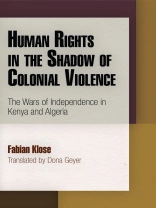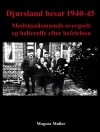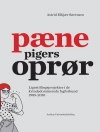Human Rights in the Shadow of Colonial Violence explores the relationship between the human rights movement emerging after 1945 and the increasing violence of decolonization. Based on material previously inaccessible in the archives of the International Committee of the Red Cross and the United Nations Human Rights Commission, this comparative study uses the Mau Mau War (1952-1956) and the Algerian War (1954-1962) to examine the policies of two major imperial powers, Britain and France. Historian Fabian Klose considers the significance of declared states of emergency, counterinsurgency strategy, and the significance of humanitarian international law in both conflicts.
Klose’s findings from these previously confidential archives reveal the escalating violence and oppressive tactics used by the British and French military during these anticolonial conflicts in North and East Africa, where Western powers that promoted human rights in other areas of the world were opposed to the growing global acceptance of freedom, equality, self-determination, and other postwar ideals. Practices such as collective punishment, torture, and extrajudicial killings did lasting damage to international human rights efforts until the end of decolonization.
Clearly argued and meticulously researched, Human Rights in the Shadow of Colonial Violence demonstrates the mutually impacting histories of international human rights and decolonization, expanding our understanding of political violence in human rights discourse.
Daftar Isi
List of Abbreviations
Preface
Chapter 1. Introduction
Chapter 2. The New World Order, 1941-1948
Chapter 3. Contested Decolonization, 1945-1962
Chapter 4. The Legitimation of Colonial Violence
Chapter 5. The Unleashing of Colonial Violence
Chapter 6. The International Discourse on Human Rights as Marked by the Wars of Decolonization
Chapter 7. Conclusion
Notes
Bibliography
Index
Acknowledgments
Tentang Penulis
Fabian Klose teaches history at the Ludwig Maximilian University in Munich and is Wissenschaftlicher Mitarbeiter at the Leibniz Institute of European History in Mainz. Dona Geyer is an independent translator based in Germany.











